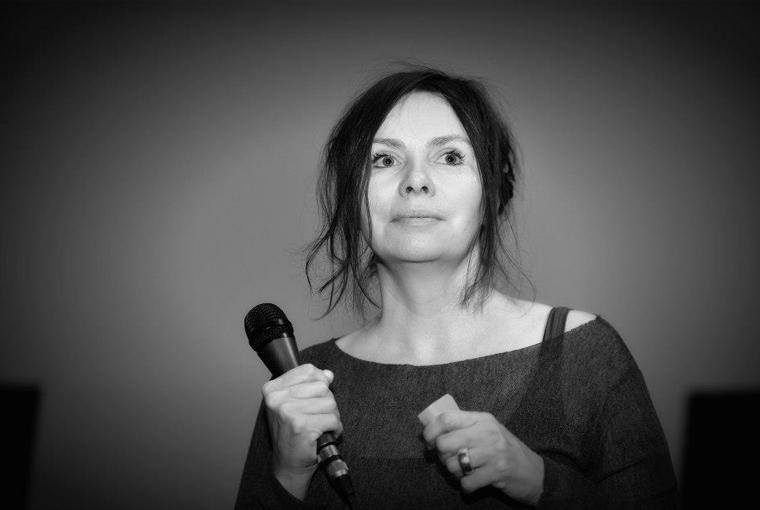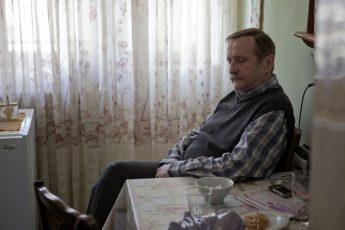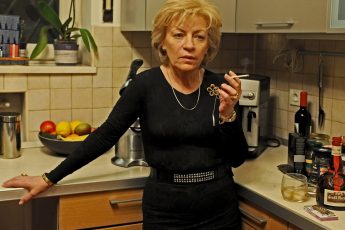
We met Baskova at the Berlinale, where her film screened in the Forum section of the festival. Baskova speaks about the political dimension of her film and labor unions in Russia.
Was it your intention to incite political awareness, or even action, with your film?
The film is intended to raise some political questions. It’s about the leftist worker’s movement and labor unions so yes, a political dimension is present.
In the press kit, your film is described as a neo-Soviet film. Could you explain what you mean by that?
I can’t really answer this question because the term was an idea of the team, not myself.
At one of the screenings, you said that during the financial crisis one couldn’t overlook the economic hardship that ordinary Russians were facing. Did you research union activities?
I did do some research about unions, travelling around various cities in Russia to get to know them better. I didn’t know anything about labor unions before that – I had heard about them from friends, and since they introduced me to activists themselves I was treated very friendly. This way, I was able to attend meetings and rallies and finally learned how they worked. Actually, they are very professional people who are interested in staying and working with their employers, they are not interested in provoking the state. I think the only way of counteracting problems in our society is to stay within the boundaries of the our constitution and legal rights. This is why the modern opposition which is forming in Russia right now struggles to gain momentum.
Did you have the opportunity to show the film to unionists?
Yes, I did. It was very important to me show it to the people whom the film is about. I screened it in different cinema clubs around the country and reactions were very positive. The screenings were normally organized in halls with 50-70 seats, and followed by discussions which lasted no less than two hours.
Did festival organizers in Russia seem happy showing your film?
There were only four festivals were the film was selected, the remaining screenings resulted from my own efforts. In Novosibirsk, there was also a screening on the campus of the university which the local students had requested to see. In each city where we screened the film – in fact, even at the Berlinale –, there was someone, usually an older person, who approached me after the screening, thanking me for the film in a very personal and non-public way. This touched me very much.
It seems that the film didn’t get a lot of state support.
No, it didn’t. But Ruskino financed our trip to the Berlinale, the Ministry of Culture has promised assistance in distribution, so it’s not entirely true that we didn’t get support.
You mentioned that the atmosphere on set was very positive. Did you feel like there was also a consensus about what was being communicated through this script?
Ideology is not everything in a work of art. The relationship between me and the people I worked with was primarily professional. But yes, the atmosphere was good.
There are many mass scenes which feel very organic – did you improvise on them, or was the “natural“ touch reached through rehearsal?
We did rehearse a lot, there was no improvisation. The dialogue was all written out. Everyone seems to have the impression that we all grew together because we wanted to make this great film, but it was a professional film set.
You said in an interview that you wanted to raise questions, not give answers, to political questions. Do you think in Russia artists have the freedom to give answers?
I am a director acting from a civil position. I’ve said everything I wanted to say in the film. As a filmmaker, cinema is the platform through which I feel comfortable expressing my personal opinions. I am an artist, not a critic or a politician. There was this question raised after one of the screenings here whether I was afraid to speak about politics. But if I were really afraid, I wouldn’t have made this film.
Thank you for the interview.




Leave a Comment